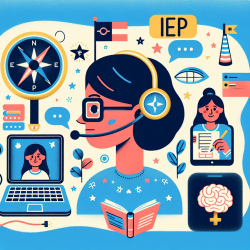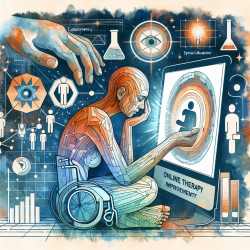Introduction
In the evolving landscape of pediatric healthcare, the treatment of Functional Neurological Disorder (FND) in children demands a transformation in the culture of care. The research article "Changing the culture of care for children and adolescents with functional neurological disorder" by Kozlowska et al. (2021) highlights the pressing need for a shift from outdated practices to a holistic, respectful, and informed approach. This blog explores how practitioners can enhance their skills and improve outcomes for children by implementing research-based strategies and fostering a new culture of care.
Understanding the Outdated Culture
The traditional approach to FND has often been marred by stigma, a lack of understanding, and a dualistic view of mind and body. Stories from children, families, and clinicians reveal an erosion of empathy and a failure to recognize the complex neurobiology of FND. This outdated culture imposes iatrogenic stigma, leaving children and families feeling dismissed and misunderstood.
Building an FND-Informed Culture
To create an FND-informed culture, practitioners must embrace the biopsychosocial model of illness, which considers the interplay of biological, psychological, and social factors. Key changes include adopting FND-informed beliefs and attitudes, using child-friendly language, and implementing structural, educational, and process interventions.
Implementing Structural and Educational Interventions
Effective change begins with educating clinicians about FND and integrating this knowledge into practice. Educational initiatives can include:
- Training sessions and workshops on FND diagnosis and treatment.
- Incorporating FND into healthcare curricula and continuing education programs.
- Developing referral pathways that ensure accurate diagnosis and communication with families.
Structural interventions, such as embedding psychological services within neurology departments, can facilitate collaborative care and improve access to treatment.
The Role of Language in Care
Language plays a crucial role in shaping the clinician-patient relationship. Using therapeutic language that respects and supports the child can mitigate stigma and foster a sense of understanding and trust. Avoiding terms that children find offensive, such as "psychogenic" or "pseudo," and instead using terms like "functional seizures" or "non-epileptic seizures" can help in this regard.
Encouraging Further Research and Practice Improvement
Practitioners are encouraged to delve deeper into the research on FND and consider how they can apply these insights to their practice. Continuous learning and adaptation are essential to providing the best care for children with FND.
To read the original research paper, please follow this link: Changing the culture of care for children and adolescents with functional neurological disorder.










